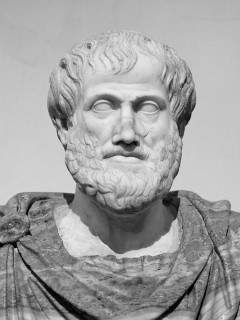
Publication details
Publisher: Springer
Place: Berlin
Year: 2018
Pages: 59-72
Series: Issues in Business Ethics
ISBN (Hardback): 9783319742915
Full citation:
, "Aristotle and Werhane on moral imagination", in: The moral imagination of Patricia Werhane, Berlin, Springer, 2018


Aristotle and Werhane on moral imagination
pp. 59-72
in: R. E. Freeman, Sergiy Dmytriyev, Andrew C. Wicks (eds), The moral imagination of Patricia Werhane, Berlin, Springer, 2018Abstract
Aristotle holds that virtue is more important to ethics than is following principles, though principles count for something. To act virtuously requires finding a mean between two bad extremes, such as cowardice and foolhardiness. This in turn requires the ability to see which details of a case are salient – or, in Aristotle's terms, what the essence of the situation is. The enabling faculty Aristotle calls perception. Werhane's account of moral imagination is similar. Perception can go wrong, according to Aristotle, when we apply the wrong principle to a situation because we do not see the situation for what it really is. This Werhane calls failure of moral imagination.Werhane claims that organizations as well as individuals can have moral imagination. Aristotle believes, somewhat similarly, that one's community deeply affects one's character, hence one's ability to perceive correctly. There remains a problem about finding a mean between the extremes of isolation and surrender of one's autonomy.
Cited authors
Publication details
Publisher: Springer
Place: Berlin
Year: 2018
Pages: 59-72
Series: Issues in Business Ethics
ISBN (Hardback): 9783319742915
Full citation:
, "Aristotle and Werhane on moral imagination", in: The moral imagination of Patricia Werhane, Berlin, Springer, 2018

